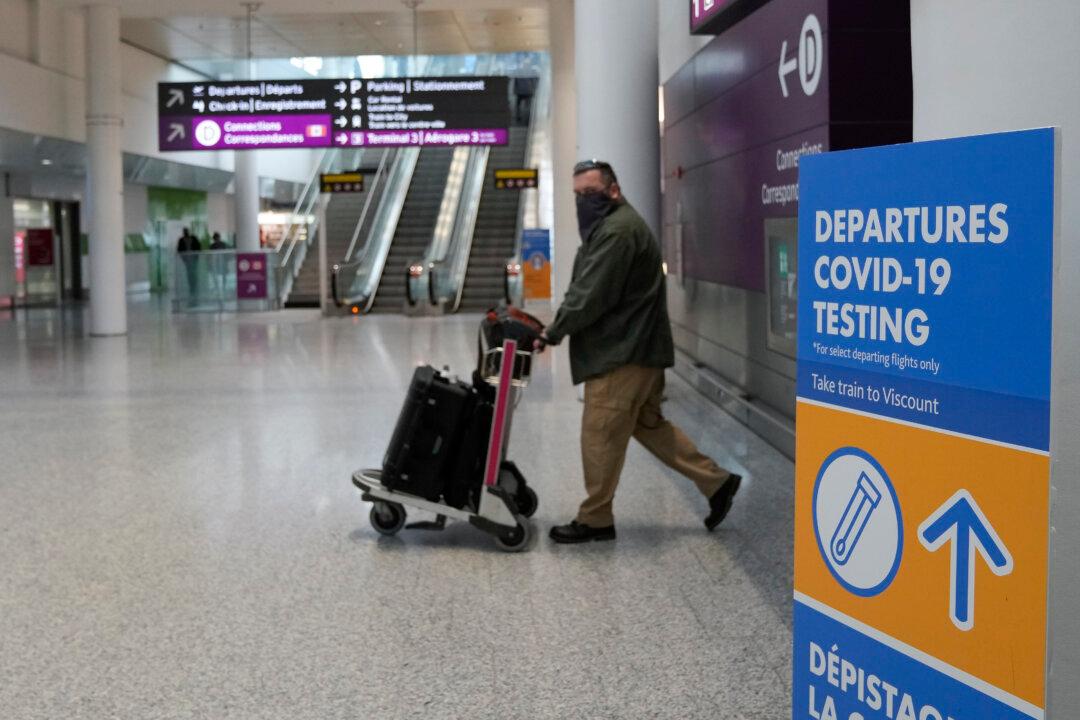The federal government has scrapped the pre-arrival COVID-19 testing requirement for all fully vaccinated travellers coming into Canada, taking another major step back to normalcy.
Federal Health Minister Jean-Yves Duclos said in a virtual press conference on Thursday that the country is “entering into a transition phase of this pandemic,” as he announced the removal of pre-entry COVID-19 testing effective on April 1, at 12:01 a.m. EDT.





